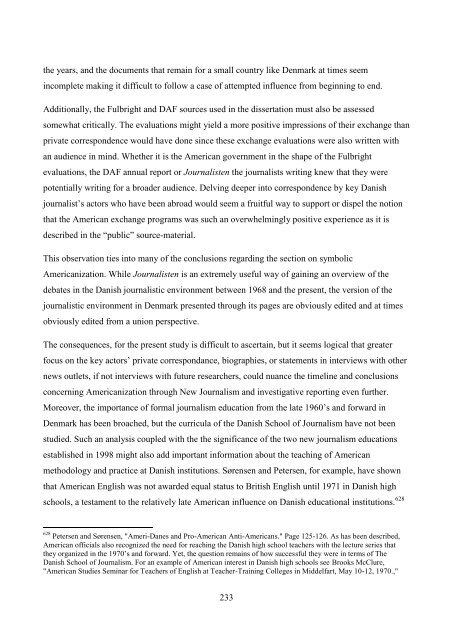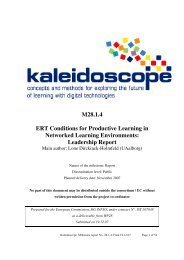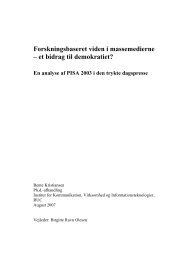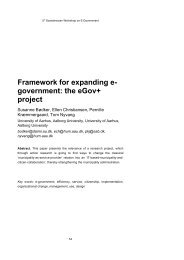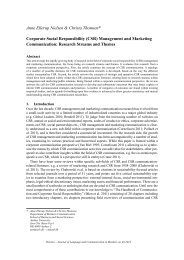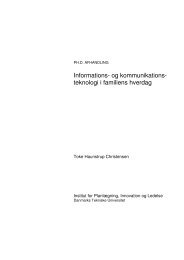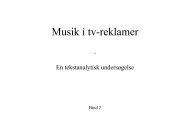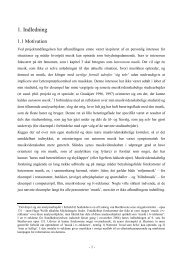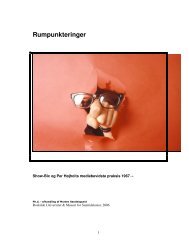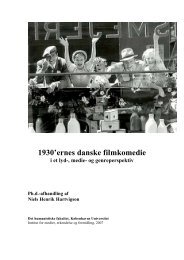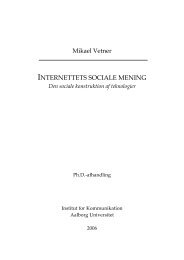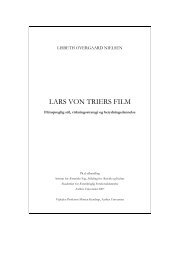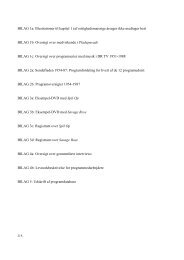The Jeremiad Over Journalism
The Jeremiad Over Journalism
The Jeremiad Over Journalism
Create successful ePaper yourself
Turn your PDF publications into a flip-book with our unique Google optimized e-Paper software.
the years, and the documents that remain for a small country like Denmark at times seem<br />
incomplete making it difficult to follow a case of attempted influence from beginning to end.<br />
Additionally, the Fulbright and DAF sources used in the dissertation must also be assessed<br />
somewhat critically. <strong>The</strong> evaluations might yield a more positive impressions of their exchange than<br />
private correspondence would have done since these exchange evaluations were also written with<br />
an audience in mind. Whether it is the American government in the shape of the Fulbright<br />
evaluations, the DAF annual report or Journalisten the journalists writing knew that they were<br />
potentially writing for a broader audience. Delving deeper into correspondence by key Danish<br />
journalist‘s actors who have been abroad would seem a fruitful way to support or dispel the notion<br />
that the American exchange programs was such an overwhelmingly positive experience as it is<br />
described in the ―public‖ source-material.<br />
This observation ties into many of the conclusions regarding the section on symbolic<br />
Americanization. While Journalisten is an extremely useful way of gaining an overview of the<br />
debates in the Danish journalistic environment between 1968 and the present, the version of the<br />
journalistic environment in Denmark presented through its pages are obviously edited and at times<br />
obviously edited from a union perspective.<br />
<strong>The</strong> consequences, for the present study is difficult to ascertain, but it seems logical that greater<br />
focus on the key actors‘ private correspondance, biographies, or statements in interviews with other<br />
news outlets, if not interviews with future researchers, could nuance the timeline and conclusions<br />
concerning Americanization through New <strong>Journalism</strong> and investigative reporting even further.<br />
Moreover, the importance of formal journalism education from the late 1960‘s and forward in<br />
Denmark has been broached, but the curricula of the Danish School of <strong>Journalism</strong> have not been<br />
studied. Such an analysis coupled with the the significance of the two new journalism educations<br />
established in 1998 might also add important information about the teaching of American<br />
methodology and practice at Danish institutions. Sørensen and Petersen, for example, have shown<br />
that American English was not awarded equal status to British English until 1971 in Danish high<br />
schools, a testament to the relatively late American influence on Danish educational institutions. 628<br />
628 Petersen and Sørensen, "Ameri-Danes and Pro-American Anti-Americans." Page 125-126. As has been described,<br />
American officials also recognized the need for reaching the Danish high school teachers with the lecture series that<br />
they organized in the 1970‘s and forward. Yet, the question remains of how successful they were in terms of <strong>The</strong><br />
Danish School of <strong>Journalism</strong>. For an example of American interest in Danish high schools see Brooks McClure,<br />
"American Studies Seminar for Teachers of English at Teacher-Training Colleges in Middelfart, May 10-12, 1970.,"<br />
233


